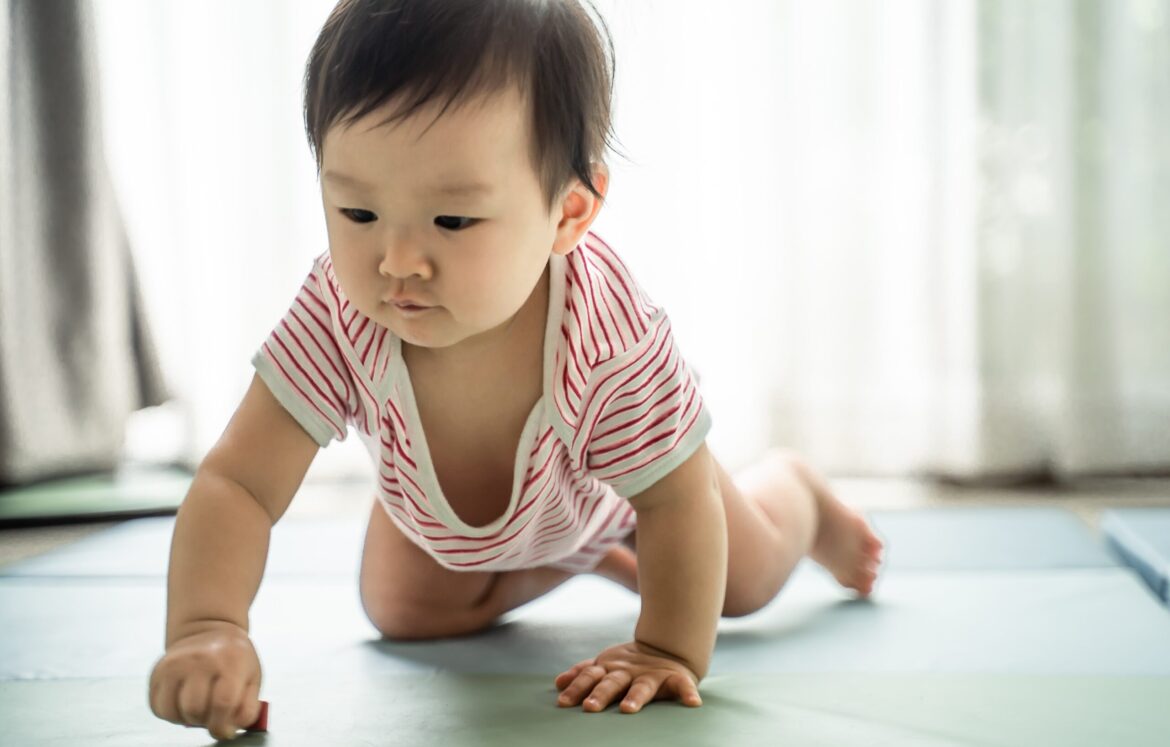When Will My Baby Start Crawling & Walking?

When Will My Baby Start Crawling & Walking?
Introduction
One of the most exciting milestones in a baby’s development is learning to crawl and walk. As a parent, you might be eagerly waiting for the moment when your baby starts moving independently. But when exactly should you expect these milestones? The truth is, every baby is different, and while there are general timelines, development varies from child to child.
In this guide, we’ll explore when most babies start crawling and walking, what factors influence these milestones, and how you can encourage your baby’s mobility in a safe and supportive way.
When Do Babies Start Crawling?
Crawling is a significant step in a baby’s physical development, helping to build strength and coordination for walking. Most babies begin crawling between 6 to 10 months of age. However, some babies may start earlier, while others might skip crawling altogether and move straight to pulling up and standing.
Types of Crawling
Not all babies crawl the same way. Some common crawling styles include:
- Classic Hands-and-Knees Crawl – The traditional way of moving on all fours, where the baby alternates hands and knees to move forward.
- Commando Crawl – Some babies prefer dragging their bodies forward using their arms while keeping their bellies on the floor.
- Bear Crawl – Instead of crawling on their knees, some babies move on their hands and feet with their knees lifted.
- Scooting – This involves moving around by pushing with one or both legs while remaining in a seated position.
Signs Your Baby Is Ready to Crawl
Before your baby starts crawling, you may notice some early indicators such as:
- Pushing up on hands and knees during tummy time.
- Rocking back and forth while on all fours.
- Reaching for toys while lying on their belly.
- Rolling over easily in both directions.
How to Encourage Crawling
Encouraging your baby to crawl involves creating a safe and stimulating environment. Here’s what you can do:
- Tummy Time – Provide plenty of supervised tummy time to strengthen your baby’s neck, shoulder, and core muscles.
- Place Toys Just Out of Reach – Position favorite toys slightly beyond your baby’s grasp to encourage movement.
- Limit Time in Walkers & Bouncers – While fun, these devices can delay the muscle development needed for crawling.
- Cheer Them On – Offer verbal encouragement and praise to make crawling fun and rewarding.
When Do Babies Start Walking?
Walking is one of the biggest developmental milestones in early childhood. Most babies take their first steps between 9 to 15 months. Some may walk as early as 8 months, while others take longer and start closer to 18 months.
Stages of Learning to Walk
Walking doesn’t happen overnight! Babies go through several stages before taking their first steps:
- Pulling Up (6-10 Months) – Babies begin using furniture or caregivers to pull themselves up to a standing position.
- Cruising (8-12 Months) – Once standing, babies start moving along furniture while holding on for support.
- Standing Unassisted (9-14 Months) – As their balance improves, babies learn to stand on their own without support.
- First Steps (9-15 Months) – Babies take a few wobbly steps before gaining more control and confidence.
- Confident Walking (12-18 Months) – With practice, babies walk more steadily and may even start running.
How to Encourage Walking
Helping your baby learn to walk requires patience and a supportive environment:
- Give Baby Plenty of Floor Time – Allow free movement without restrictive devices.
- Encourage Cruising – Place sturdy furniture close together so your baby can move while holding on.
- Use Push Toys – Walking push toys can provide stability and motivation.
- Let Them Go Barefoot – Walking barefoot helps develop balance and coordination.
- Offer Support, Not Force – Let your baby take the lead; avoid pushing them to walk before they are ready.
What If My Baby Is Not Crawling or Walking Yet?
Delayed Crawling
Some babies skip crawling altogether and go straight to standing and walking. If your baby is not crawling by 12 months, but is otherwise active and engaging, there may be no cause for concern. Encouraging tummy time and interactive play can help build their strength and coordination.
Delayed Walking
If your baby is not walking by 18 months, it may be helpful to discuss their progress with a pediatrician. Some potential reasons for delayed walking include:
- Low muscle tone or strength.
- Lack of opportunities for movement and play.
- Premature birth (preemies may reach milestones later than full-term babies).
- Underlying medical conditions (rare but possible).
Final Thoughts
Every baby develops at their own pace, and there’s a wide range of normal when it comes to crawling and walking. Encouraging movement through play, tummy time, and a safe environment can support your little one’s journey to mobility.
If you’re ever concerned about your baby’s progress, talk to your pediatrician for reassurance and guidance. Remember, whether your baby starts walking at 9 months or 15 months, they will get there in their own time!






